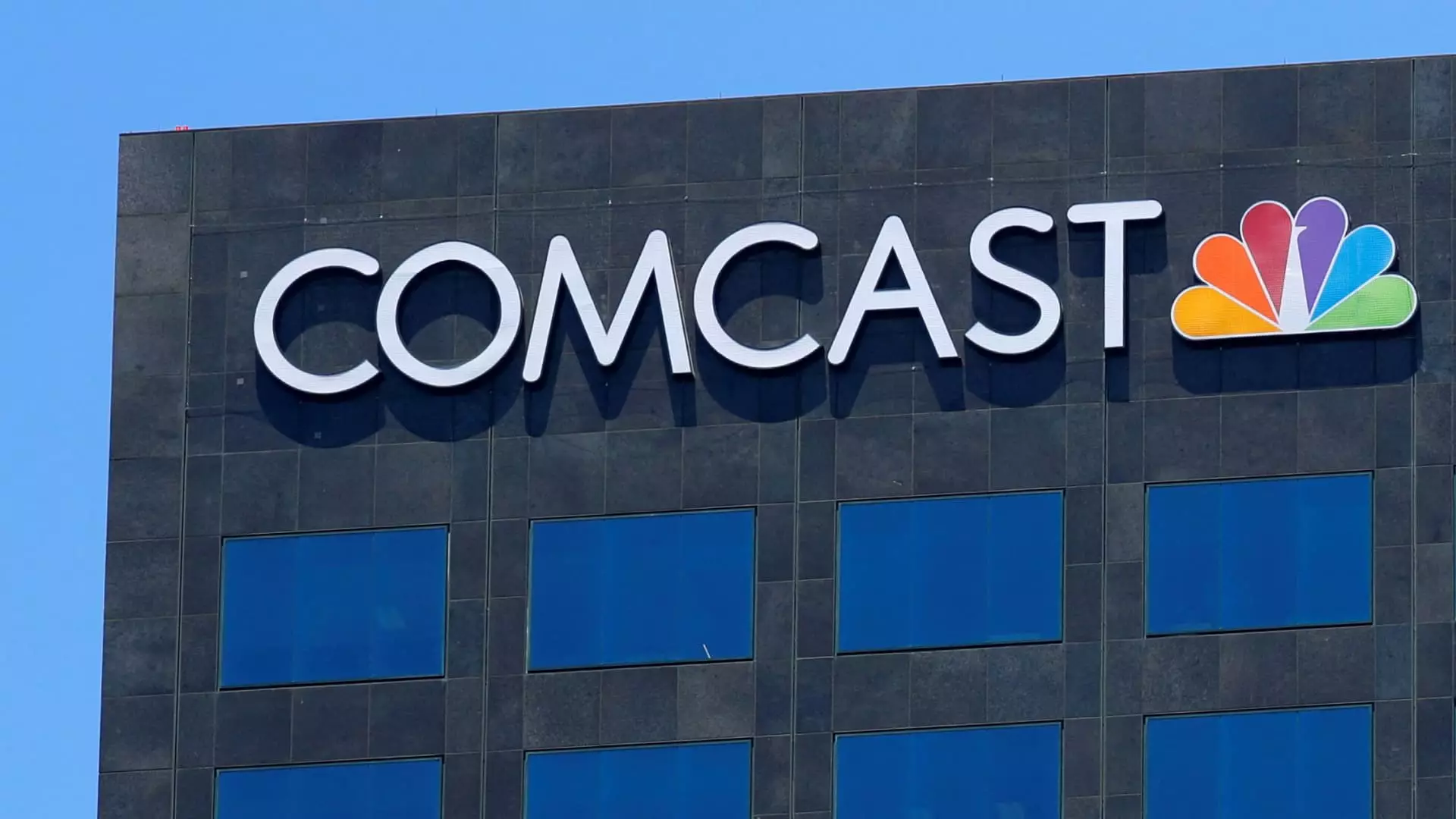In a move that signals significant changes in the media industry, Comcast is progressing with the spinoff of its cable network channels. This decision comes at a time when traditional pay-TV models are facing unprecedented challenges, as consumers increasingly migrate towards streaming platforms. According to sources reported by CNBC, Comcast’s plan is to establish a standalone entity comprising its cable networks, paving the way for a more adaptable future in an ever-evolving media landscape.
The anticipated separation is expected to unfold over the next year, with an announcement possibly coming soon. These cautious yet decisive steps indicate that Comcast recognizes the need to rethink its operational structure in response to ongoing consumer trends. The company aims to create a more agile organization capable of efficient mergers with other networks or potential sales to private equity groups. This not only reflects a proactive approach but also underscores the importance of flexibility in a turbulent market.
The new entity will be spearheaded by Mark Lazarus, who currently heads NBCUniversal’s media group. Having a strong leader with experience in navigating complex media landscapes is an advantageous move, especially as the company embarks on its spinoff journey. Anand Kini, currently the Chief Financial Officer at NBCUniversal, will transition to serve as CFO and operating chief of the new organization, bringing substantial financial expertise to the table.
Importantly, Comcast Chairman and CEO Brian Roberts will retain a voting position in the new entity, even though he will not assume an operational role. This governance structure indicates that while there will be a new leadership team, Comcast will still maintain a form of oversight, preserving continuity during the transition period.
One of the standout features of this spinoff is its tax-free nature, making it an attractive proposition for shareholders. The strategy aims to ensure that the share structure of the new organization closely mirrors that of Comcast, fostering investor confidence amid the change. This financial strategizing illustrates Comcast’s attempt at a smooth transition, which can often be fraught with unforeseen challenges.
Comcast’s media segment has shown resilience, reporting a 37% revenue increase up to $8.23 billion in the third quarter, primarily propelled by the global spotlight on the Olympics. Such figures demonstrate that while traditional TV networks may be facing declines due to cord-cutting, they still have lucrative elements that can drive significant revenue streams.
The spinoff reflects broader shifts in consumer behavior, particularly as viewers exit traditional pay-TV bundles in favor of streaming solutions. Comcast has been proactive in this realm, investing in its streaming platform, Peacock, and recognizing the necessity for adaptation to survive in a crowded marketplace. The presence of popular networks like E!, Syfy, USA, and Golf Channel in the spinoff indicates a strategy to concentrate on cable channels that may thrive outside of Comcast’s umbrella.
Despite cord-cutting trends, it’s essential to acknowledge that media companies still heavily rely on traditional networks as cash cows. Hence, finding a balance between streaming endeavors and the traditional cable landscape is vital for Comcast’s sustained growth.
As NBCUniversal embarks on this transformative journey, the future remains full of possibilities. Key figures within the organization will be reassigned, with Donna Langley transitioning to lead NBCUniversal Entertainment and Studios, while Matt Strauss will oversee the media group. The strategic focus on aligning leadership with the evolving industry landscape lays the groundwork for potential growth.
Moreover, while networks such as Bravo remain within Comcast’s realm—primarily due to their integral role in Peacock’s content delivery—additional licensing agreements will likely be scrutinized during the separation process. This planning phase is crucial, as it will help dictate the parameters within which future collaborations will occur across various NBCUniversal entities.
Comcast’s impending spinoff of its cable networks is a strategic maneuver that highlights the need for media companies to evolve amidst changing consumer preferences. With strong leadership at the helm and a focus on financial structure, the new entity aims to harness opportunities for growth in a volatile market. As traditional television continues to face pressures from the rise of streaming services, this spinoff may well mark a pivotal moment in Comcast’s journey, reshaping its approach to meet the challenges of the modern media landscape head-on.

